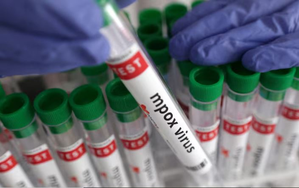Kenya’s monkey pox cases rise to 41

Nairobi, Feb 15 (IANS) Kenya has confirmed 41 cases of monkey pox (mpox) across 12 counties, with one fatality reported since the outbreak began in July 2024, a government official confirmed.
Principal Secretary in the Ministry of Health Mary Muthoni said a total of 271 contacts of the 41 cases have been identified, with half of the confirmed cases having a travel history to mpox-affected countries, including Uganda and Rwanda.
The ministry, in collaboration with county governments and partners, has intensified surveillance efforts in all high-risk counties to sustain the spread of the mpox virus, Muthoni said in a statement issued in Nairobi, the capital of Kenya.
“Rapid response teams have been deployed to conduct active case searches, contact tracing, and case management, including mental health and psychosocial support for those affected,” she said.
The official noted that over 3.3 million travellers have been screened at the points of entry and 419 samples from suspected cases have undergone testing at the National Public Health Laboratory and partner laboratories.
She said the ministry has been working closely with the Ministry of Education to strengthen infection prevention, control, and other public health measures to prevent the spread of cases in learning institutions.
Muthoni revealed that other threats have also emerged, posing significant risks to public health and safety.
In December 2024, Rwanda announced the end of the Marburg virus outbreak, initially declared in September 2024, but in January 2025, Tanzania declared a new Marburg virus outbreak, which has already claimed 10 lives, Xinhua news agency reported.
“Given our proximity and frequent cross-border movement, Kenya remains at high risk of importation, requiring urgent and coordinated action to mitigate the spread of these diseases,” Muthoni said.
She urged the public to remain vigilant and adhere to recommended public health guidelines, noting that all travellers shall observe routine hand hygiene practices, including regular handwashing and the use of alcohol-based sanitisers.
–IANS
int/jk/rad




